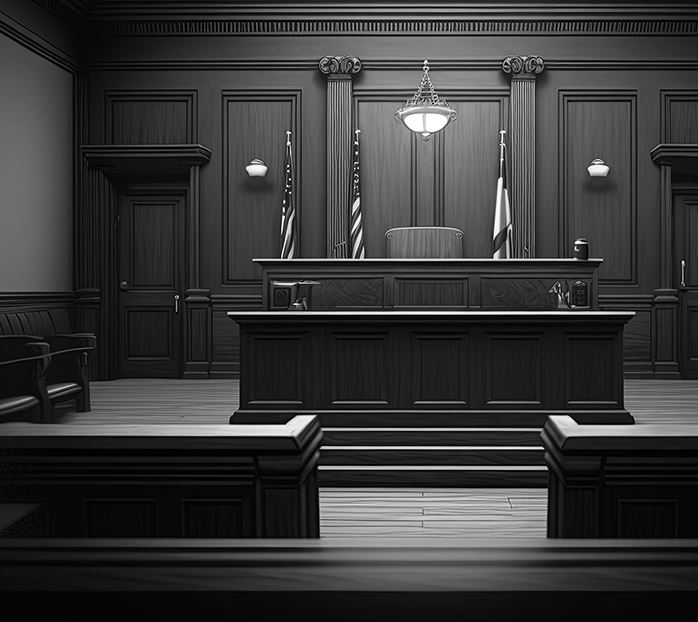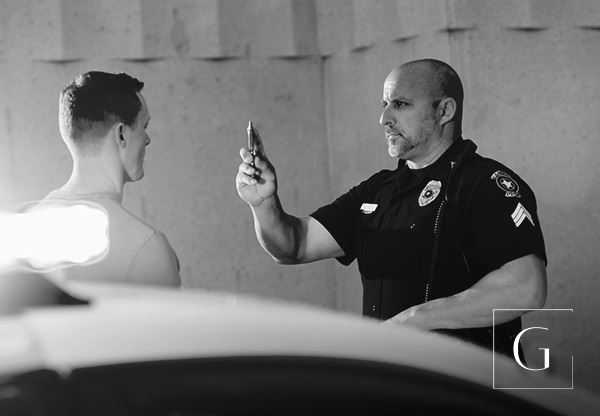Los Angeles Criminal Defense Lawyer
Criminal Defense Attorney In Los Angeles, CA
Criminal charges in Los Angeles, CA can be devastating. Whether you are facing misdemeanor offenses or more serious felony charges, the long-term implications of convictions can last for a lifetime, even after your penalty has been served. If you are convicted, you could face fines and jail time, as well as trouble seeking housing or employment, a poor reputation in the community, and even alienation from friends and family. However, an accusation alone is not enough to prove your guilt, and you shouldn’t have to be punished because of an accusation. When you hire the right criminal defense attorney, you hire someone who will seek to protect your rights, protect you from false accusations, and help protect your future.
Knowing Your Rights
While it may feel like much has been taken away from you since an accusation, you are still entitled to the rights and privileges provided by the U.S. Constitution and the state of California. There are specific rights designed to protect those who are facing the criminal justice system to ensure that charges filed against them are just and that the case is built on facts — not circumstance. These rights are granted to everyone who faces criminal charges regardless of their age, race, sex, gender identity, religion, or any other personal identifier. This, too, is a protected right.
If the accusation against you comes with a formal arrest by a police officer, it is important that you understand the rights afforded to you. Both the Fifth and Sixth Amendments will be your first line of defense. The combination of both of these amendments forms what is more commonly known as the Miranda Rights, and law enforcement is required to them say to you upon your arrest:
- Under the Fifth Amendment, you are protected from self-incrimination. You are not under any legal obligation to speak with law enforcement at the time you are arrested. However, if you choose to speak with law enforcement, you need to understand that any information you provide may be used in your criminal trial against you. Whether you already have an attorney or are going to seek the assistance of one, most will tell you to exercise this right until you have the opportunity to speak to them.
- Under the Sixth Amendment, you have the right to seek the counsel of an attorney regardless of your financial status. If you choose to have an attorney provided to you by the state, you will be assigned a public defender who will handle your case. While public defenders are the most cost-effective way to have representation in your criminal case, as discussed, they may not be able to provide you with the attention or time your case deserves. Still, having their protection is better than having none at all. If you are arrested, you should request the presence of an attorney before any questioning. From the moment you request this service, law enforcement must cease all questioning.
FACING CRIMINAL CHARGES?
Attorney Goodman handles a wide variety of criminal cases and accused crimes. Don’t see your charges below? Contact us for a consultation.
FINDING A GOOD CRIMINAL ATTORNEY
An arrest or even an accusation against you for a criminal offense can leave you feeling lost and filled with questions. You are immediately thrust into the criminal justice system without anyone by your side to help. You may be provided an attorney as guaranteed by your constitutional rights, but these public defenders may not be able to devote the necessary time and energy to your case.
While providing a great service, public defenders often are backlogged with an overwhelming number of cases that prevent them from giving your case the attention it deserves. A public defender can often be the easier route for many as deciding on a criminal defense attorney can be complicated, but easy does not always mean better. Selecting the right attorney can make all the difference in the outcome of your case.
When choosing a criminal defense attorney, you should consider the following questions:
- Do they have experience with the type of charge you are facing? There is no shortage of criminal defense attorneys, but not all can handle every type of criminal case. Many specialize in specific areas of criminal defense, such as DUI or drug possession. When considering the nature of your charges, you want to find an attorney with the knowledge and experience that can build a strong defense. When they have familiarity with your charges, they are able to put their experience to work right away. If your case is their first experience, there may be a learning curve that could cause steps to be missed.
- Are they going to be responsive to your needs? You are going to have many questions along the way about your case, the progress of investigations, and what you should be doing to prepare. While it is unreasonable to expect that you are an attorney’s only client, you should be able to rely on timely responses and thorough answers to your questions. An attorney with accessibility and responsiveness will help you feel at ease throughout the process and make you feel like you are a part of your defense. You are the one facing the charges, and the outcome will impact you.
- Are you comfortable with the attorney? You may not gain much from searching online for an attorney, but your initial conversation can show you a lot about the direction of your case. Just as you want to rely on the timeliness of their responses, you should also feel comfortable with speaking to them about your concerns and even about the facts of your case. Honesty is a strong part of any criminal defense, and if you feel the need to hide information or facts from your attorney, then they are not able to provide you with the thorough defense you need. Having a strong rapport with one another allows you to have open and honest communication.
- Do they exhibit characteristics such as compassion or empathy? Facing criminal charges may leave you feeling fearful, overwhelmed, confused, and a myriad of other feelings that may keep you up at night worrying. When your attorney understands how you feel, they are more likely to speak in a way that helps you stay calm and focused. Your emotions may steer your mind away from the facts of the case, causing you to say or do something detrimental to the progress of your defense. Understanding how you feel, helping you to process those feelings, and keeping you focused on the goal are the marks of a great attorney.
- Does the attorney show a track record of success? An attorney’s case log is a paper trail that speaks to their abilities. While you may feel comfortable with them, their approach, and their knowledge, if they are not successful in the courtroom or in negotiating with prosecutors, they may not be the right choice for you. Taking a look at online reviews and other public records data can help you decide if they can help you. A successful attorney is more likely to be able to provide what’s needed for your case. Additionally, search for a strong litigator both in and out of the courtroom.
These questions certainly don’t encompass all you should look for, but they can help you determine which attorneys are experienced, compassionate, and honest.
It is with tremendous thanks and a grateful heart that we let you know how much we appreciated your expertise, advice and phone calls on [client's name] behalf. You are a person of service and dedication.
- Former client’s parents
I don't know where to start. Honestly, I don't think I could possibly write anything that would come close to describing Mrs. Goodman's Skill as a Lawyer , she truly is remarkable at what she does. Do yourself a favor, if your in a bind, and are looking for a well respected lawyer that can produce results.... Call Jacqueline! I…
- Sharif A.
Ms Goodman and her staff were beyond helpful. I was in an extremely difficult situation that I hadn’t been in before and needed help. I was referred to Jackie and her office who were extremely helpful. Jackie and her team were extremely empathetic and knowledgeable. They were quick to respond, took action, and kept me informed. Thank you Ms Goodman…
- Nick K.
Ms.Goodman has been an amazing and thorough lawyer representing my family. She has shown up to each court date, being prepared and ready to speak to the judge. She has been a great communicator with my family and kept us informed along the way. She is authentic, and will go the long mile on your case. Choose her to represent…
- Elizabeth E.
I needed an appointment with Ms. Jacqueline Goodman and it was urgent. The best part was that she called me back immediately and I did not have to drive an hour to see her. The first meeting is free and she spoke with me for a lengthy time and she made me feel like for the first time in seeking…
- Mary P.
Ms Goodman was excellent an very professional. She took the time to understand our concerns an worries. I had 2 really bad cases facing 10+ years for trafficking, sales, an distribution between the both ... she was able to get me the best deal an walked away with probation an a new look at life. I will always recommend her…
- Joe G.
Ms. Goodman and her team is by far the best in Southern California. I literally had zero hope of getting anything but prison time on my current case and Ms. Goodman somehow got me an interview for probation. I can say it hasn’t been easy and she’s been doing a lot out of love more than any other attorney would…
- Former Client
The court was offering 9 years for 459pc. After retaining her I got the deal I wanted and even better I was free after serving just 2 years. She's an amazing attorney that you can count on.
- Aliya J.
I can't even begin to express how amazing Jacqueline was when I worked with her for a close friend's case. She was always a quick text away, and when we worried she was the vote of confidence we needed to keep going. Her office staff was also SO easy to work with. Her closing statement moved me, the family, and…
- Caleigha C.
Best lawyer! Jacqueline Goodman is an amazing lawyer, she knows her law well. She helped my brother out of a messy situation and she was always easy to contact and gave me all the information that came her way.
- Rosie C.
Jacqueline, was very professional, and knowledgeable. She listened closely, as we discussed my case. I could tell She truly cared about me. I was very pleased the outcome, and would strongly recommend Her. Honest, hard working, and compassion, would describe, Jacquie.
- Dorian C.
Ms. Jacqueline Goodman was a beacon of hope to my daughter at a time when options and hope seemed limited. Her hard work and dedication was an outcome of Excellence. Ms. Goodman’s attention to detail and knowledge of laws are truly unsurpassed. Thank you.
- Ralph S.
Jacqueline is the best! If any of my friends or family found themselves in a situation where they needed a Criminal Defense attorney I would highly recommend her. She and her staff are extremely professional and they know their stuff. I can't say enough good things!
- Travis H.
She was carring and attentive, always up front with information. She truly cares about her clients and works diligently to achieve the best possible outcome. My family and I truly admire and respect this amazing and talented lawyer. She is definitely someone you can count on for the best advice and outcome.
- Chip E.
Great attorney to work with. She's a boss and has some serious attorney swagger. When I walked into the court room with her, everybody stopped and starred. I felt like I was getting represented by a superstar attorney. She'll run circles around any DA.
- Marcus W.
THE TYPES OF CASES WE HANDLE
For over 20 years, The Law Office of Jacqueline Goodman has been gaining experience with all types of criminal defense cases. Each case is unique, but the experience gained over the years allows our office to put together a defense that can improve the chances your case has of success. Our experience has allowed us to practice with cases in the following areas.
This list certainly does not encompass all that our team handles. Our offices can defend most misdemeanor and felony charges. No matter how big or small you feel your charges are, the reality is your charges will impact your future, so we put our clients first in every case.
Our team is aggressive and puts the requirements of your case first. Contact us today, and let our team start fighting for you.
Violent Crimes
Drug Offenses
White-Collar Crimes
Sexual Offenses
Driving Under The Influence

California Arrest process
While consequences can vary based on several factors, the basic penalties for drunk driving in the state of California are as follows:
Police Reports
The Arresting Officer’s Testimony
The Testimony of a Witness
Physical Evidence
Any Available Photos or Videos
PENALTIES FOR MULTIPLE DUI CONVICTIONS
An arrest is no guarantee of a conviction. Do not let the prosecutor convince you that you stand no chance to defend yourself from your charges. Speak up by letting Attorney Jacqueline Goodman be your voice. Using her advanced criminal law knowledge as a Board-Certified Criminal Law Specialist, she can attack the prosecution’s case from multiple angles. If the prosecution is unable to prove beyond a reasonable doubt you are guilty, your case may be thrown out entirely! No matter what strategy is best for your defense, its purpose will be to prevent you from being slammed by the intense penalties associated with a multiple DUI conviction. All DUI convictions can be paired with a mandatory ignition interlock device (IID). In addition, a fourth DUI charge may be considered a felony. Do not let a felony mark stain your criminal record for the rest of your life.
There is an alibi
It was an act of self-defense
There was a mistaken identity
There were improper procedures by law enforcement
Someone coerced you into committing the crime
Someone coerced you into committing the crime

CRIMINAL DEFENSE LAW FAQ'S
Los Angeles, CA
The job of a criminal defense attorney is to provide legal representation for those who face criminal charges. To do this, they are tasked with investigating the facts of a case and building a defense that can help their client. During the judicial process, they counsel their clients on the ideal course of action at different times and are authorized to speak on behalf of their clients.

THE LAW OFFICE OF JACQUELINE GOODMAN —
YOUR LOS ANGELES CRIMINAL DEFENSE ATTORNEY
At The Law Office of Jacqueline Goodman, we understand what is at risk for you. Whether this is your first criminal charge or your third, our attorneys work tirelessly to challenge the facts of the case. In some instances, our attorneys can have a client’s charges reduced or dismissed even before a trial begins. We investigate the steps of the legal process taken from the moment of arrest through the entire trial to be sure that your rights are upheld, evidence was properly collected, and you receive a fair trial. There is no one-size-fits-all approach to criminal defense. Because of that, we handle each case uniquely so that we can provide our clients with top representation. We put your needs first.
GET IN TOUCH WITH A CRIMINAL DEFENSE ATTORNEY IN LOS ANGELES TODAY
No matter what type of criminal charges you may be facing, you have a lot on the line. Whether you are accused for the first time, or this is your second or third charge, you should have an attorney on your side you can trust and who has your interests in mind. At The Law Office of Jacqueline Goodman, our attorneys do just that. For over 20 years, we have been putting the needs of our clients first while gaining experience in multiple different areas of criminal defense. Because of this, our attorneys are ready to answer the questions you have about the charges against you, the potential penalties you face, and what defense options might help your case the most.
If you have been charged with a crime, don’t feel like you are left to face it alone or that you need to rely on a public defender. Work with a team that is attentive to your needs and puts in the work your case deserves.




